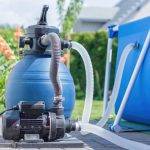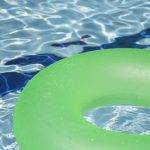Automatic Pool Cleaners are one of the most labor-saving (and expensive) accessories for your pool. Why do some cleaners cost $99.00 and some cost $3000+? Which one is correct for your pool?
Essentially, you pay for cleaning horsepower. The bigger and faster the cleaner, the more you will pay. Smaller pools do fine with smaller (less expensive) cleaners. A big pool does best with a big, powerful vacuum.
In order of cleaning power (and price), here are the three basic types:
Suction Cleaners – [$99 – $500] Driven by your primary pool pump, these cleaners move around your pool and suck dirt from the floor (and sometimes walls). The biggest advantage to them is cost and the biggest disadvantage is they are slow and best suited for smaller pools. The dirt they pick up is deposited into your pool filter. These suction side cleaners are fairly dependable but they have certain “wear” parts that must be replaced for them to stay in top shape.
Pressure Cleaners – [$700 – 1300] These cleaners are self-propelled and clean your pool using your existing pool pump PLUS the addition of a booster pump to supply additional energy to the cleaner.
The combination of cleaner and pump make these quite a bit more expensive than suction cleaners but what you get back is a faster, more powerful cleaner than a suction cleaner.
A disadvantage to them seems to be they are somewhat temperamental (more moving parts) but they possess quite a bit of cleaning power and normally do a great job on medium to larger pools. They contain their own filtering device and must be cleaned after each use.
Robots are slowly reducing the number of pressure side cleaners and, in the future, you will see less and less pressure side cleaners as the advantages of robots is fairly clear.
Robots – [$650 – $1800] These cleaners are self contained and need no outside source of energy. They contain their own electric pump(s) and are simply plugged into an electrical outlet and dropped into your pool. They are fast, generally the fastest, and are designed to clean larger residential pools. There biggest disadvantage is they seem incredibly pricey for some plastic and rubber pieces and a motor. But if you have a large pool, there is nothing that will do the job as well as a robot. Some robots have an optional remote which is well worth the additional cost.
This article contains a lot of generalizations. Often, new pool owners simply want to know, “Which one is best”? The answer is to understand how the price of the unit relates to their cleaning power. Then decide how much cleaning power is necessary for your pool.





